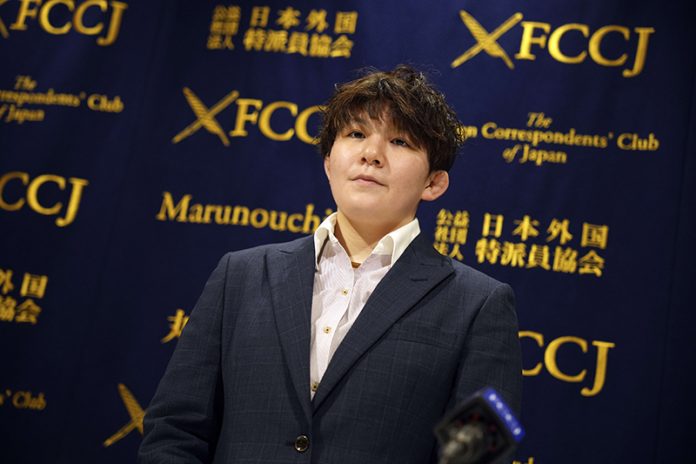
By MARI YAMAGUCHI
Associated Press
TOKYO (AP) — Rina Gonoi came forward in summer 2022 to demand a reinvestigation of the case that authorities dropped nearly a year earlier, saying the sexual assault caused her to give up her military career. Now, with her court case won and widespread problems uncovered in the organization, she hopes Japan’s Self Defense Force will be reborn as a place where everyone can easily speak up against harassment.
“I could not put (the assaults) behind as if nothing happened, and because of my appreciation for the Self Defense Force, I wanted them to become a better organization,” Gonoi told reporters Wednesday in Tokyo.
Gonoi said she had mixed feelings about speaking up against her former workplace, but she was compelled to because she didn’t want to see anyone else quitting from the same pain.
As a child, she witnessed the army’s disaster relief work firsthand after the March 2011 earthquake and tsunami struck her hometown in Miyagi prefecture, directly north of Fukushima where the disaster triggered the Daiichi Nuclear Power Plant meltdown.
That was her inspiration when, years later, Gonoi joined the SDF and was assigned to a Fukushima unit in April 2020.
Gonoi recalled service members were treated equally during training, but she often felt women were looked down upon or verbally abused outside work, including at parties.
“I hope the Jieitai (SDF) becomes a pleasant workplace for both men and women, and both during and outside training sessions. I hope there will be supervisors with a sense of justice who can deal with harassment cases appropriately.”
Gonoi said she is hopeful, and believes most people are serving their duty with sense of justice.
The case filed by Gonoi in August 2021 was initially dropped. In June 2022, she came forward and demanded the case be reinvestigated, saying the experience caused her to give up her military career. Prosecutors reopened her case in September that year, also prompting a military-wide investigation into sexual harassment and other abuse allegations. That same month, the Ground Self Defense Force partially acknowledged the misconduct and apologized, then fired five soldiers and punished four others.
In August, a panel of experts investigating Japan’s military and the Defense Ministry found widespread coverups and reluctance among supervisors to deal with the problem, and recommended fundamental improvements.
Then, on Tuesday, the Fukushima District Court found three former soldiers in the assault case guilty of sexual indecency. The three men argued they only tried to be funny and pleaded not guilty.
While they won’t serve any jail time, the conviction is a rare victory in a country that consistently ranks near the bottom in international gender equality surveys and where sexual misconduct complaints are often disregarded. People who have been harassed or assaulted tend to face backlash for speaking up — including Gonoi, who was attacked on social media.
“I still wish I never had to come forward and fight, and I hope someday we have a society where we don’t have to raise our voice,” she said. But, she said, the outcome was well worth her struggle, and the process gave her strength.
Defense Minister Minoru Kihara said he is determined to allow zero tolerance for harassment as service members work together to strengthen Japan’s military capability.
Japan is among the lowest-ranked on the international gender equality scale, and the percentage of women in the military is especially low at 8.7% — second-lowest among the Group of Seven nations after Italy’s 6%. As the nation’s population rapidly ages and shrinks, Japan’s military seeks to recruit more women.
Gonoi thought about taking a break after her groundbreaking ruling, but she wants to help others. Having practiced judo since childhood, she likened the sport that helped her through difficult times to her battle for justice.
“Judo taught me to stand up no matter how many times I was thrown down. It gives you the strength you need in your life,” she said. “I’m happy to tell the story of my fight against harassment if it can give some support for someone.”
















